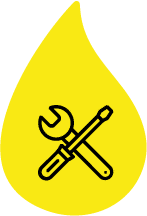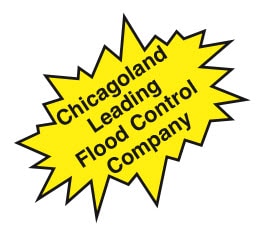Ejector/Sump Pump Maintenance: What You Should Know
Ejector/Sump pumps are critical to a home’s flood control systems. They are submersible devices that are often installed at the lowest point of your house in a sump pit, such as the basement, or some other crawlspace.
These pumps are inactive most of the time—the only time they become active is when heavy rains hit. As the soil becomes oversaturated and groundwater begins to seep into the sump pit, the pumps activate via a float switch. They start pumping water away from your home and into a nearby storm drain, dry well, or detention pond. These little devices are common and very, very useful.
But despite how common they are, there are plenty of ways to install or maintain them incorrectly. And improper installation or maintenance can cost a homeowner big in the long run.
Luckily, there are local specialists…like the experienced Chicago plumbers at Parks’ Plumbing & Sewer, who can help with sump pump maintenance.
There are a number of issues that can affect sump pumps, such as:
-
Faulty wiring.
-
Clogged parts.
-
Water damage.
-
A continuously running pump.
-
Poor installation.
-
And more
These machines are tough, but they’re not invincible, and that’s all the more reason to get your pumps checked regularly by someone you can trust.
For this reason, it’s encouraged that either homeowners themselves or a trusted plumbing professional take a look at the pumps annually or even quarterly if the pump has become a maintenance issue.
When Is It Time To Get Your Pumps Checked?
Annual/Quarterly Service
Your pumps should be looked at about once a year.
However, industry professionals recommend looking at your pumps quarterly or sooner by either the homeowner or a professional. And if something is believed to be wrong or malfunctioning with the pumps, immediate maintenance is recommended.
Slow Performance
These pumps aren’t designed to run 24/7—they should only be activated in the event of a storm or a routine maintenance test.
If you notice the pump is running slower than it used to, this could result from a mechanical problem with a particular part or a breakdown of the pump itself.
Please make a note to contact your local licensed plumbers to ask for advice and maybe have them stop over to give the pump a checkup.
Odd Noises
Pumps, like many machines, require lubrication and a decent amount of dedicated upkeep to stay running. Most of the time, they don’t require a lot of intervention, and they can be left alone.
However, there are times where debris may become lodged in their parts, and this can cause a series of problems that could lead to total mechanical failure in the event of a storm. Often, one of the first ways to tell there’s a mechanical issue with the pump is if it starts making a loud humming or vibrating noise.











